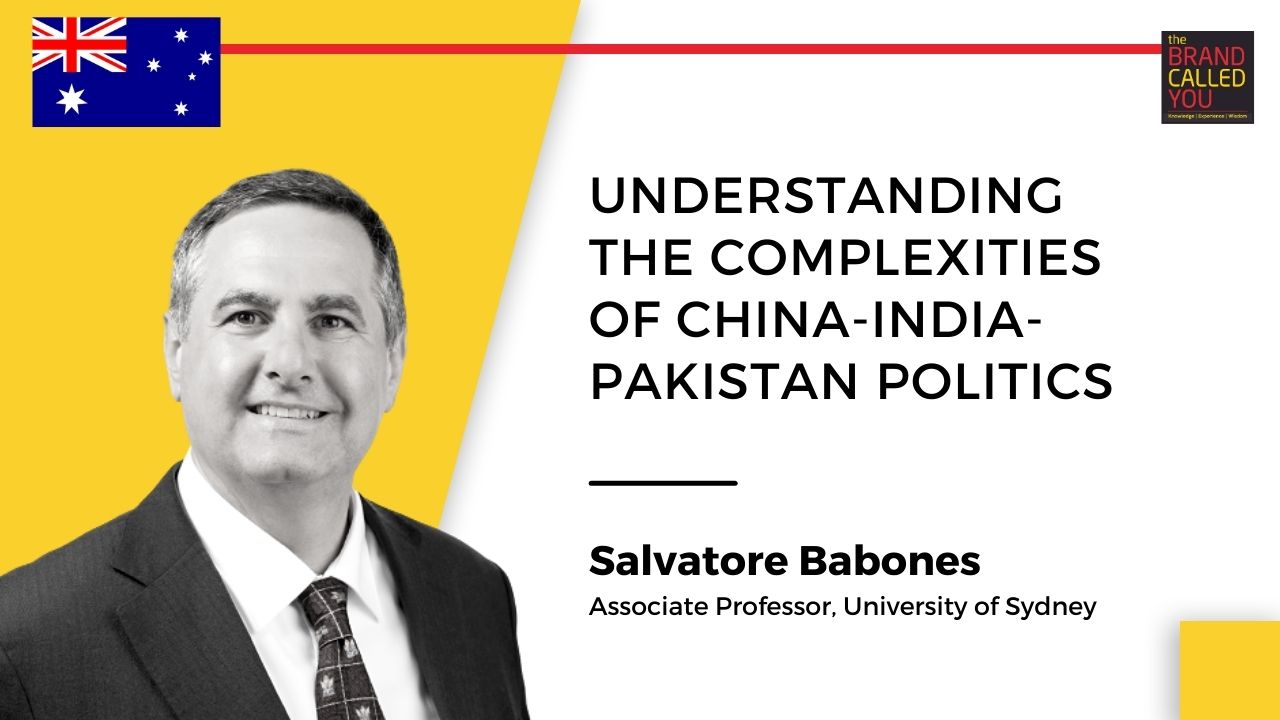Salvatore Babones, Associate Professor, University of Sydney
- Salvatore Babones is an Associate Professor at the University of Sydney.
- He is the Director of the China and Free Societies program at the Centre for Independent Studies.
Podcast
Overview
Today, we embark on a captivating journey guided by the insightful words of Salvatore Babones, an associate professor at the esteemed University of Sydney. With his remarkable reputation as a recognized and respected commentator, Salvatore takes center stage, shedding light on leadership lessons and unraveling the complex tapestry of India’s political and economic landscape. Join us as we delve into his profound perspectives, traversing the realms of international affairs, economic growth, agricultural reform, and the intricate dance between India, China, and Pakistan.
00:35- About Salvatore Babones
- Salvatore Babones is an Associate Professor at the University of Sydney.
- He is the Director of the China and Free Societies program at the Centre for Independent Studies.
04:40- What are some key political and economic challenges India currently faces?
- The key economic challenge I believe is agricultural reform in India.
- Agriculture employs a large portion of the labor force but lacks productivity.
- Despite producing a surplus and ensuring food security, it doesn’t contribute enough to the economy.
- The government attempted agricultural reform but withdrew due to protests, without strong economic justifications.
- Interfering in the market, such as prohibiting onion exports, hurts poor farmers for the benefit of urban consumers.
- Agricultural reform should be the top priority to address inefficiencies and promote rural growth.
18:17- What are your views on the relationships between India and China? And how does Pakistan fit into this equation?
- From my perspective, the security tensions between India and China have impacted their economic relationship, especially on the Indian side due to democratic pressures.
- On the Chinese side, India holds less significance, and China’s primary focus is on strategic competition with the US.
- While India sees China as its biggest challenge, Pakistan has become a secondary concern, with the potential threat of a state collapse being a major worry for Indian policymakers.
- China continues to support Pakistan, but its financial resources are limited, and it is no longer willing to provide extensive financial aid.
RESOURCES:
You can connect with Salvatore Babones | LinkedIn
CONNECT WITH US:
Enjoy this podcast?
Love to give us 5 stars? ⭐⭐⭐⭐⭐ If you do, we’d love a review from you. Help us reach more people to keep them in the know as we talk to leaders, high achievers, and thought leaders from diverse backgrounds and nationalities. Excellence can come
from anywhere; stay in the know, and hear from emergent high achievers and gurus.
Stay updated with what’s shaping the world today through the latest The Brand Called You Podcast episode. Follow us on iTunes, Spotify, and Anchor. fm.
You can find us at:
Website: www.tbcy.in
Instagram: http://bit.ly/3HO7N06
Facebook:http://bit.ly/3YzJOaD
Twitter: http://bit.ly/3wMBOXK
LinkedIn: https://www.linkedin.com/company/tbcy/
YouTube: http://bit.ly/3jmBqfq
Chingari: https://chingari.io/tbcypodcast
Josh: http://bit.ly/3WWP0nB
Thanks for listening!
Profile
- Salvatore Babones is an Associate Professor at the University of Sydney.
- He is the Director of the China and Free Societies program at the Centre for Independent Studies.


